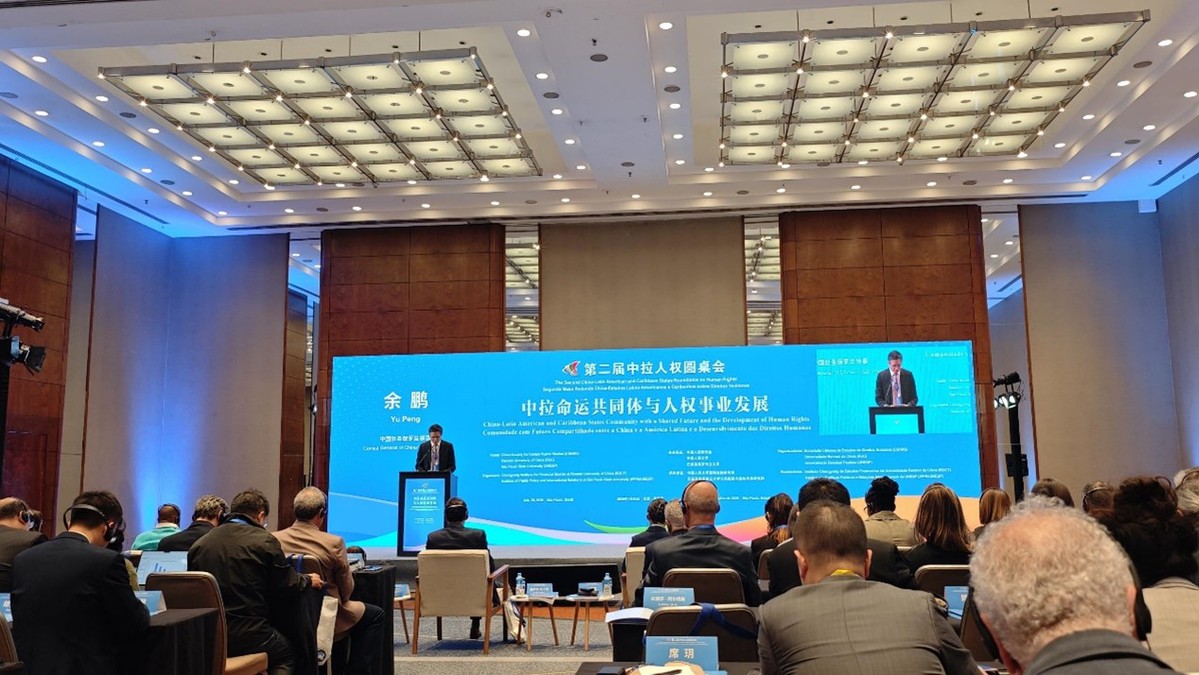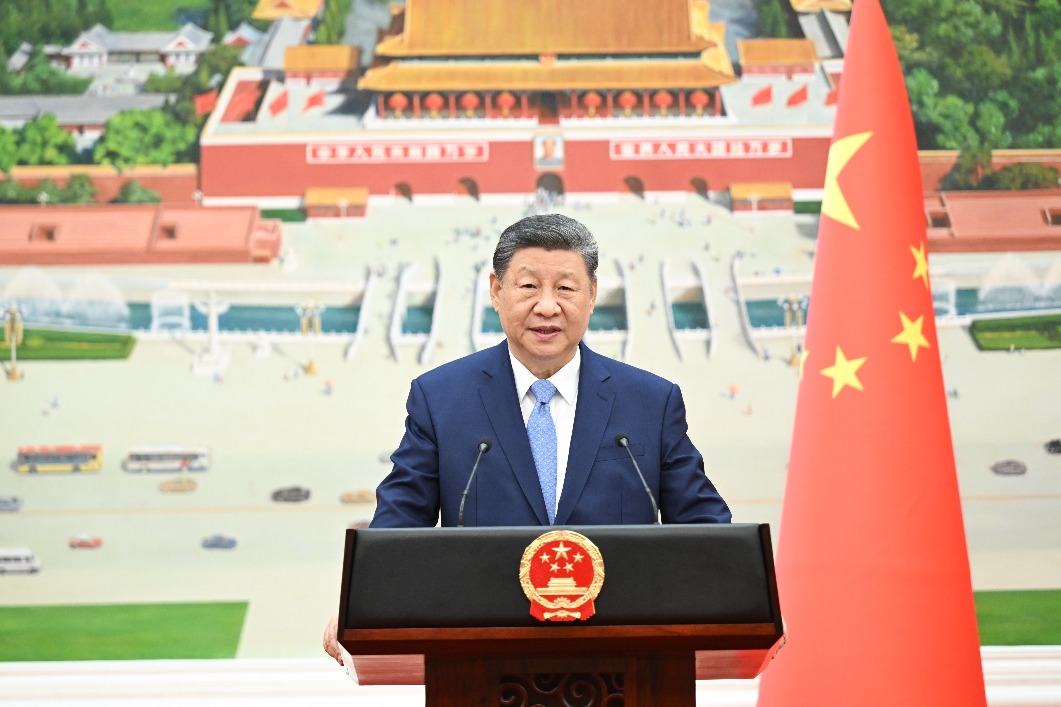Scholars propose inclusive human rights framework at S?o Paulo forum


There is no single path to promoting human rights but rather the possibility of approaching the issue within historical, political and social realities, said scholars and experts at a forum on human rights on Friday.
They were speaking at the Second China-Latin American and Caribbean States Roundtable on Human Rights in the Brazilian city of S?o Paulo. The forum brought together government officials, scholars, think tank analysts and media representatives from China and 19 Caribbean and Latin American countries to discuss the safeguarding of human rights in the era of AI and digitalization, environmental justice, and the role of China-Latin America cooperation in advancing global human rights frameworks.
"China is working hard to advance the building of a strong country and the rejuvenation of the Chinese nation through Chinese modernization, and it adheres to a people-centered human rights philosophy, prioritizing the rights to subsistence and development as fundamental," said Wang Yanwen, deputy secretary-general of the China Society for Human Rights Studies.
"By coordinating the holistic advancement of all human rights, China has achieved historic milestones in its human rights cause."
Zhang Donggang, Communist Party Secretary of Renmin University of China, said that China and Latin America should safeguard human rights through mutual learning between civilizations, promote human rights by sharing experiences, advance human rights by jointly addressing challenges and develop human rights through collaborative governance. He emphasized the need for both sides to work together in advancing not only their own human rights causes but also global progress in the field.
In his opening remarks, César Martins, vice-rector of S?o Paulo State University, said that the roundtable was convened at a critical time amid global geopolitical turbulence and escalating ethnic conflicts. He added that China and Latin America have set an exemplary model for cross-civilizational dialogue and experience-sharing, demonstrating to the world that sincere cooperation is possible, regardless of cultural or lifestyle differences, as long as it serves the common well-being and improves the lives of all peoples.
Yu Peng, China's consul general in S?o Paulo, said that China prioritizes common security in order to foster a more stable international environment for human rights realization. He emphasized China's commitment to a development-first strategy, which lays a stronger material foundation for human rights.
"The advancement of human rights is inseparable from the development journey of Global South nations," said Arley Nichaul Salimbi Gill, chair of the Grenada National Reparations Committee.
"Countries like China have made commendable efforts in poverty reduction and healthcare access. Regardless of wealth, power or size, every nation must unconditionally uphold the fundamental right to life for all people."
"I am happy for the respectful friendship of the People's Republic of China, which has earned recognition in our region through cooperation and solidarity," said Shaira Natasha Downs Morgan, a member of Nicaragua's National Assembly and chair of the country's Committee on Indigenous, Afro-descendant and Autonomous Regions Affairs.
"With a vision for the future of humanity, exchanges in technology, education, culture and connectivity demonstrate that another model of international relations is indeed possible, one based on equality among allies, not domination; on brotherhood, not subjugation."
"Through significant investment in large-scale, efficient transmission infrastructure, notably High Voltage Direct Current (HVDC) technology from China, State Grid Brazil Holding has helped Brazil integrate renewable energy, bolstering its energy security and green transition," said Anne Luise de Amorim, ESG manager at State Grid Brazil.
"Concurrently, it emphasizes a commitment to human rights by investing over $35 million in social projects to support the development of communities affected by its operations over the last 15 years."
"Human rights have been used as a weapon by the West," said Julián Rebón, secretary of Advanced Studies at the School of Social Sciences, University of Buenos Aires, and researcher at the Gino Germani Research Institute.
"We emphasize the necessity of a new version of human rights, an edition from the South, an edition from our history, from our strivings, as we share the common goal of turning human rights into a more inclusive and multilateral way."
The roundtable was co-hosted by the China Society for Human Rights Studies, Renmin University of China and S?o Paulo State University.
































